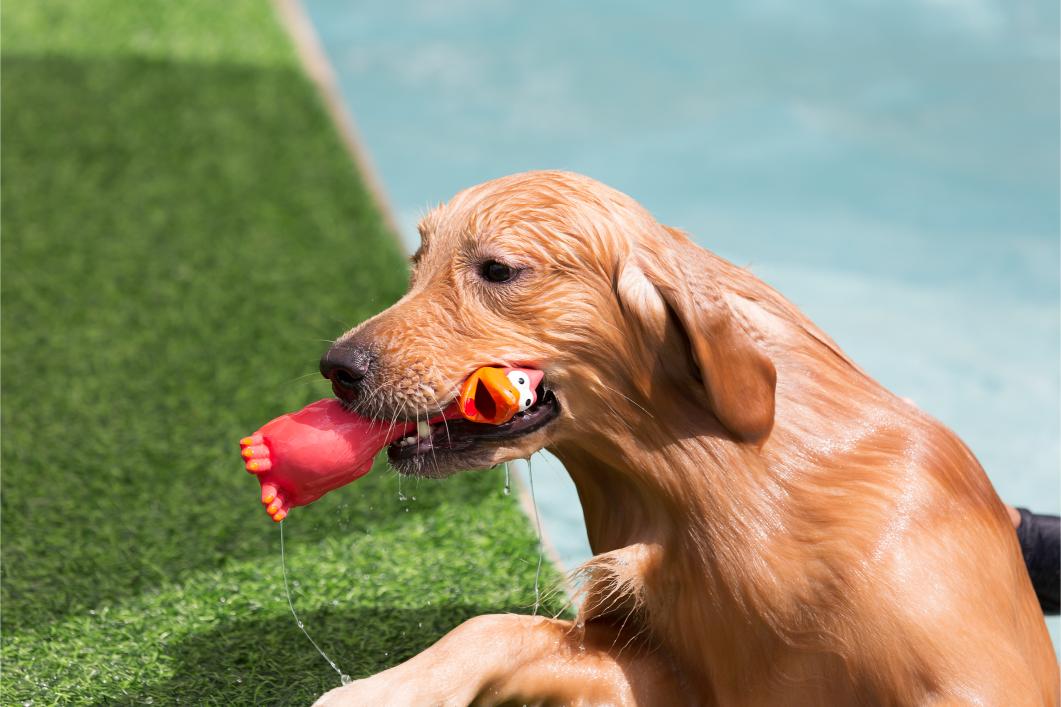How Often Should You Wash Your Pet’s Toys (and How to Do It Safely)

Playtime is essential for the health and well-being of our pets, and a pet toy soaked in slobber is a toy that is well-loved. But all that moisture coupled with dirt and dander creates a breeding ground for mold, germs, and bacteria. Practicing pet toy hygiene can reduce the spread of germs lurking on your pet’s toys. Here are some tips from our team at The Urban Pet to help you keep your pet’s playthings clean and safe.
Why is Pet Toy Cleaning Important?
Washing pet toys is critical for the health of the pets and the people in the household.
Proper pet toy hygiene can help:
- Reduce the build-up of harmful bacteria, mold, and allergens on pet toys.
- Prevent the spread of diseases caused by staph, yeast, and other pathogens.
- Minimize allergy triggers from dust, pollen, and pet dander that accumulates on toys.
- Maintain a hygienic environment for your pet and prevent the spread of germs throughout your home.
- Reduce the risk of irritation or infections in your pet’s mouth.
Tips for Washing Pet Toys
Whether you’re cleaning dog toys or cleaning cat toys, the most important thing to remember is to always use pet-safe cleaning products.
How to Clean Your Pet’s Hard Toys
There are three basic options for cleaning dog toys or cleaning cat toys made from hard plastic or rubber:
- Check the toy’s label (or visit the manufacturer’s website) to see if the toy is dishwasher safe. Place toys on the top rack and air dry them completely.
- Soak toys in a solution that is 5% vinegar and 95% warm water for 15 minutes. Rinse thoroughly and let them dry completely.
- Scrub toys using a mild, unscented, pet-safe dish soap, such as Dawn. Rinse completely and allow the toys to dry.
How to Clean Your Pet’s Soft Toys
Try these methods to properly clean your pet’s favorite plushies:
- Machine wash on gentle using detergent that is free from dyes and fragrances.
- Hand wash in soapy water using pet-safe dish soap or a vinegar/water solution.
More Pet Toy Hygiene Strategies
- Inspect toys regularly for wear and tear or loose parts, and toss heavily damaged toys that could pose a choking hazard.
- Wash toys weekly or every couple of weeks, depending on use.
- Rotate toys so your pet always has clean toys to play with.
- Toys with visible mold or a musty smell could have significant bacterial growth and should be tossed or disinfected thoroughly using a vinegar/water solution.
- When washing pet toys, rinse thoroughly to remove soap residue and allow them to air dry completely.
Make Pet Toy Cleaning Part of Your Pet Wellness Routine
Pet toys are important for mental and physical stimulation, and keeping them clean protects your pet from the spread of germs and bacteria. Contact us at (615) 356-8993 if you’d like more tips on pet toy cleaning or if it’s time for your pet’s wellness visit.
